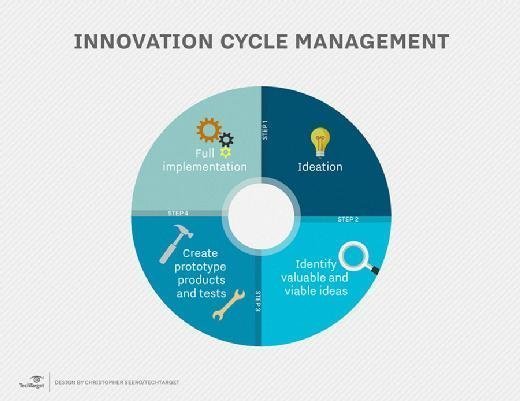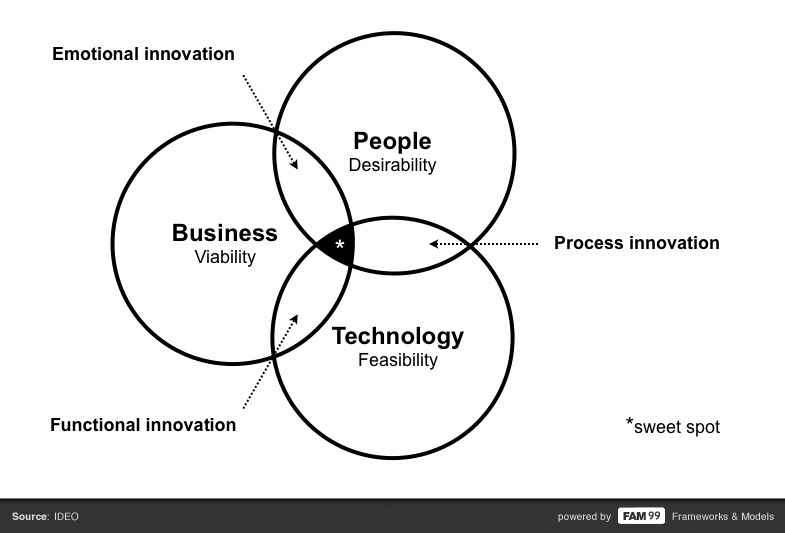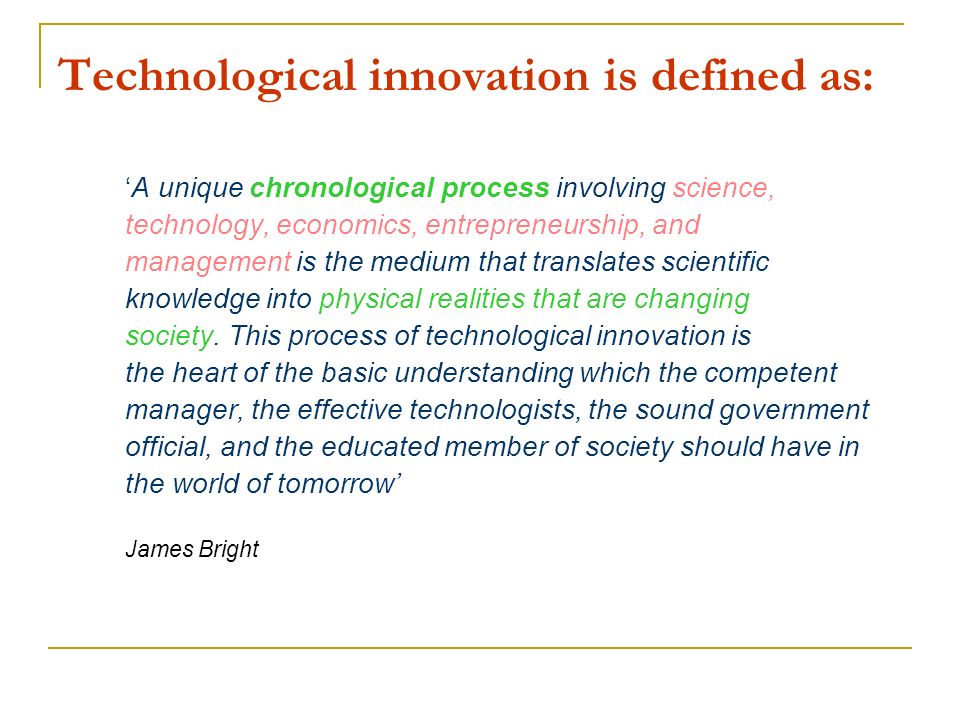In today’s rapidly evolving world, it is crucial for individuals to grasp the concept of innovative technology and its significance. “Understanding the Definition of Innovative Technology” is a product that aims to provide a comprehensive understanding of this term. By breaking down the complexities and unveiling the true essence of innovative technology, this product equips you with the knowledge to navigate the ever-changing landscape of modern advancements. Whether you are a tech enthusiast or simply curious about the latest trends, this product offers a compelling insight into the world of innovation, empowering you to stay ahead in the dynamic world of technology. Truly a game-changer, “Understanding the Definition of Innovative Technology” ensures that you are well-equipped to embrace the future.
Understanding the Definition of Innovative Technology

This image is property of cdn.ttgtmedia.com.
The concept of innovative technology
Innovative technology refers to the application of new or significantly improved methods, ideas, or products in the field of technology. It involves the creation, development, and utilization of novel solutions that address existing problems, improve efficiency, enhance user experiences, or open up new possibilities. Innovative technology can take various forms, including software, hardware, devices, systems, processes, or tools, and it can be found in diverse sectors such as healthcare, communications, transportation, entertainment, and many others.
The importance of defining innovative technology
Defining innovative technology is crucial for several reasons. First and foremost, it helps in identifying and differentiating truly groundbreaking advancements from mere incremental improvements. By understanding the characteristics that make a technology innovative, policymakers, researchers, and businesses can determine where to invest their resources and how to prioritize their efforts. Additionally, a clear definition of innovative technology enables effective communication and collaboration among stakeholders, facilitates the development of relevant regulations and policies, and guides the assessment of societal, economic, and ethical implications.
The evolution of technology
Technology has been evolving at a rapid pace throughout human history. From the invention of the wheel to the development of the internet, each era has witnessed significant advancements that have revolutionized the way we live, work, and communicate. While early technological progress was often gradual and limited to specific domains, the pace of innovation has significantly accelerated in recent times. This acceleration can be attributed to a variety of factors, including increased global connectivity, the rise of digital technologies, the democratization of knowledge, and the growing interdisciplinarity of scientific research.
The characteristics of innovative technology
Innovative technology possesses several key characteristics that set it apart from conventional solutions. Firstly, it introduces something new and disruptive, challenging the status quo and offering fresh perspectives or approaches. It often stems from unconventional thinking, looking beyond established frameworks and pushing the boundaries of problem-solving. Additionally, innovative technology is typically characterized by its ability to address significant pain points, solve complex problems, or meet unmet needs effectively. It offers unique value propositions that make it appealing to users or stakeholders, and its implementation results in substantial improvements, whether in efficiency, effectiveness, or user experience.
This image is property of qph.cf2.quoracdn.net.
The role of innovation in technology
While innovative technology is the output, innovation is the process of generating and implementing new ideas, practices, or solutions. Innovation is not limited to technological domains, as it can occur in various areas such as business models, service delivery, or organizational processes. However, when it comes to technology, innovation plays a crucial role in driving progress and advancements. It involves the discovery or creation of novel concepts, the development of prototypes or pilot projects, the refinement of solutions through iterative processes, and the successful deployment and adoption of these innovations. Innovation is fueled by creativity, curiosity, collaboration, and an openness to experimentation and risk-taking.
The relationship between innovation and technology
Innovation and technology are deeply intertwined and mutually reinforcing. On one hand, technology provides the tools, infrastructure, and capabilities that enable innovation to occur. It can act as a catalyst, offering novel possibilities and enabling the implementation of ambitious ideas. On the other hand, innovation drives the evolution of technology by pushing for continuous improvement, pushing boundaries, and inspiring new breakthroughs. The relationship between innovation and technology is symbiotic, with innovation driving the iteration and improvement of technology, while technology enables and amplifies the impact of innovation.

This image is property of acceptmission.com.
The impact of innovative technology on society
Innovative technology has a profound impact on society, shaping the way we live, work, interact, and solve problems. It can revolutionize industries, disrupt established business models, and create new opportunities for economic growth. Innovative technology has the potential to increase productivity, efficiency, and quality of life, improve access to essential services, enhance communication and connectivity, enable new forms of artistic expression, and even address complex global challenges such as climate change or healthcare delivery. However, it also raises important concerns related to equity, privacy, ethics, job displacement, and the potential for unintended consequences. Thus, it is essential to consider the broader societal implications when developing and deploying innovative technologies.
The challenges of defining innovative technology
Defining innovative technology is not a straightforward task and is often subject to various challenges. One of the primary obstacles is the rapid pace of technological advancements, which makes it challenging to keep up with the latest developments and accurately classify them as innovative or not. Another challenge stems from the subjective nature of innovation, as what may be considered groundbreaking by one person or industry may not be perceived the same way by others. Additionally, innovative technology is often contextual, meaning that its value and impact may vary depending on specific circumstances, regions, or user groups. These challenges highlight the importance of ongoing dialogue, multidisciplinary collaborations, and continuous reassessment of definitions to ensure they remain relevant and adaptable.

This image is property of innovatingsociety.com.
The different perspectives on innovative technology
Given the complexity and context-dependent nature of innovative technology, it is not surprising that different perspectives and interpretations exist. Academics, researchers, policymakers, industry experts, and the general public may approach the definition of innovative technology from distinct angles, focusing on various aspects such as technological breakthroughs, user-centric design, economic impact, scalability, or ethical considerations. While these perspectives may differ, they all contribute to a comprehensive understanding of innovative technology and inform the development of well-rounded policies, frameworks, and strategies.
The future of innovative technology
The future of innovative technology holds immense potential and possibilities. As advancements in artificial intelligence, robotics, nanotechnology, biotechnology, and other emerging fields continue to unfold, we can expect to witness transformative changes in various sectors. Innovations such as autonomous vehicles, personalized medicine, smart cities, renewable energy solutions, and immersive technologies have the potential to reshape our world. However, along with these exciting prospects come challenges and responsibilities. Balancing the pursuit of innovation with ethical considerations, ensuring inclusivity and accessibility, and addressing potential risks will be crucial to harnessing the full potential of innovative technology for the benefit of all.
In conclusion, understanding the definition of innovative technology is essential for navigating the ever-evolving landscape of technological advancements. Innovative technology embodies novelty, disruptiveness, problem-solving potential, and significant value propositions. It is driven by the process of innovation, mutually reinforcing with technology, and has far-reaching impacts on society. Defining innovative technology poses challenges due to its rapid pace, subjectivity, contextual nature, and the existence of different perspectives. Nonetheless, thriving in the future of innovative technology requires embracing its potential while responsibly addressing its implications. By striving for a shared understanding and engaging in ongoing dialogue, we can shape a future that harnesses the power of innovative technology to create a better world.

This image is property of slideplayer.com.



